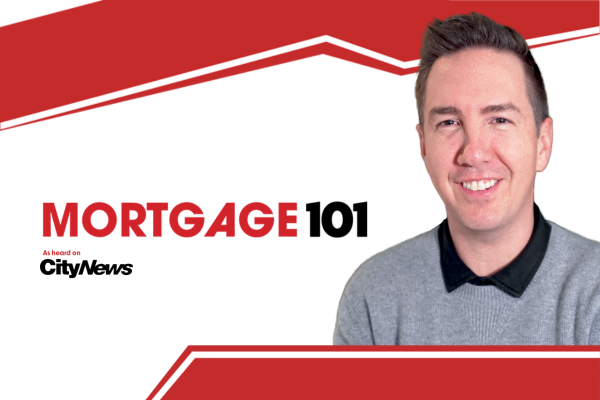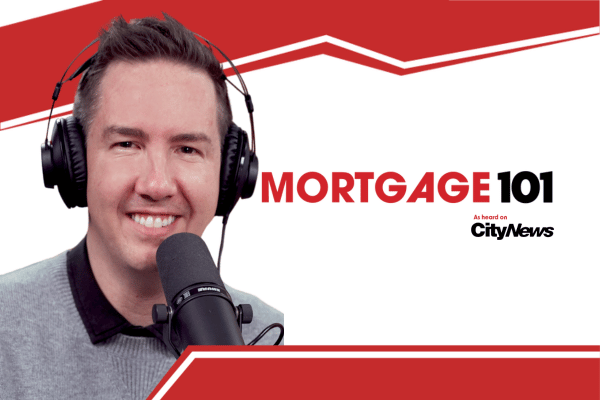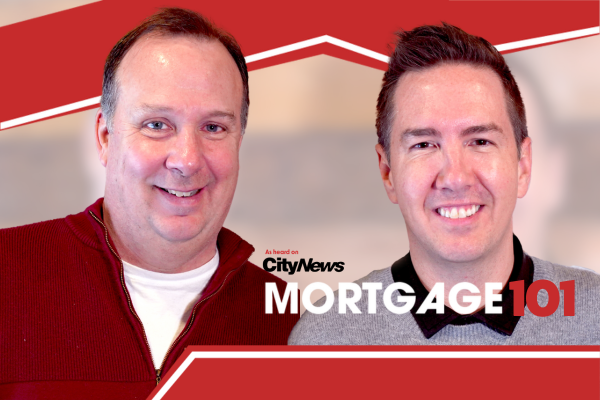Clinton and Todd explore the evolving landscape of homeownership, offering insights and expertise! Join us this episode of Mortgage 101, as we dive into discussions ranging from Halifax's growing reputation, to the nuances of mortgage lending.
Mortgage 101 – migration and first-time home buyers | September 2021 Part 2
In this episode of Mortgage 101 with Clinton Wilkins and Todd Veinotte, as heard on News 95.7, the guys talk about updates in the news, like possible changes to the Bank of Canada rates, rapid migration and first-time home buyers, and some tips for the first year you are in your new home!
Mortgage 101 with Clinton Wilkins & Todd Veinotte – September 2021 – Part 2
Don’t feel like watching the video? Check out the transcript below.
Transcript:
Bank of Canada Update: Are changes coming?
Todd Veinotte: [00:00:00:18] All right, so we’re going to talk about what’s happening with the Bank of Canada and just like months and months now, no change right? To the key interest rate?
Clinton Wilkins: [00:00:09:11] No change. And you know, some economists are saying that it could be years before we see a change. And by years, I mean two, three, four, five years. Some economists are saying that we could see changes, maybe as much as 50 basis points. So that’s half a per cent by Q4 of next year.
So, you know, we’re still a year and a bit before we may even see any changes based on, you know, what some economists are saying. A lot really has to do with what happens with inflation. We don’t know. I don’t have a crystal ball. We don’t know if there’s really going to be a fourth wave and like, what are the implications going to be in Canada. I’m uncertain. You know, I wish I had a crystal ball because likely I would be retired. But I don’t. And you know, I think we need to live every day to kind of the fullest.
And, you know, some borrowers are saying to me they’re like, Well, rates are at an all time lows. No, they’ve actually been lower. At one time, the prime rate was 2.25. You know, it was 15 years ago, but it was as low as 2.25 before. So currently, with the majority of lenders, the prime rate is 2.45. Key overnight rate is 0.25. And you know, I don’t think the Bank of Canada is going to change the rate for quite some time, Todd.
Clinton Wilkins: [00:01:27:18] There’s a lot of rebuilding that needs to happen. And I think some people in, you know, Halifax and obviously Atlantic Canada, we’re in a little bit of a micro chasm of an economy, right?
And you know, some people feel that COVID didn’t even happen here. I’m sure if you own a restaurant, or a bar, or gym, or a tourism outfit, and a variety of other industries, you’re feeling it. You know, if you’re in construction, you’re feeling it. And it’s not because it wasn’t busy. It’s because like with construction, maybe there was a shortage of materials. Maybe there’s a shortage of labour. You know, there’s a bunch of things that obviously could potentially negatively impact your business. But I think overall, aside from some of these key industries, we’ve done pretty well
“Every third call was from Ontario.”
And, you know, I think we’re going to continue doing well here. Will we continue to see the growth in population? I’m not sure. I think that’s a really great question. I think our population grew in Halifax and across Nova Scotia, P.E.I., New Brunswick and Newfoundland because it was safe and because we had a relatively normal lifestyle here during the, you know, the last 18 months. But will people continue to, you know, flock out of Ontario like Toronto?
Todd Veinotte: [00:02:44:15] No.
Clinton Wilkins: [00:02:44:19] I don’t know.
Todd Veinotte: [00:02:45:08] That surge is over.
Clinton Wilkins: [00:02:47:00] This big smoke, you know, everyone like running for the hills. Running from their one bedroom condos. I’m not sure.
Todd Veinotte: [00:02:52:15] Well, I think those who had the opportunity to do so would have done so right? I think there’ll be a trickle of it.
Clinton Wilkins: [00:02:57:21] I think there’s going to be more of a trickle. And you know, I’ve said on the show, you know, every third call was from Ontario. That has slowed. You know, we’re still seeing some of that, but it’s not to the extent that we were seeing it before. And you know, we’ll probably continue to see it for years to come.
I love Nova Scotia. Don’t get me wrong, but I think that we probably saw an artificial spike in the, you know, migration from across the country. Is it sustainable? Not with our current housing stock. It certainly isn’t Todd.
Todd Veinotte: [00:03:31:22] Well, that plays into perhaps why you said there’s more perhaps opportunity for people to purchase now or get deals done because that one in three call is not happening.
Rapid migration negatively impacted first-time home buyers
Clinton Wilkins: [00:03:42:09] Yeah. And I think, you know, that certainly is one point that we need to consider. You know, I think that with all of the, you know, buyers coming in from Ontario, it probably did negatively impact the, you know, first-time home buyers that are here.
I’m not really worried about you and I because you know what? We have cash and credit and you know, we have existing homes that we could sell or leverage to maybe continue, you know, buying. I’m really concerned for those first-time home buyers because obviously with the price increases, first-time home buyers can only afford so much.
And, you know, we’re seeing obviously bigger down payments because obviously, they’re trying to bring the mortgage amount down, but they need to bring the mortgage amount down to a level that’s affordable, that they can afford to make the payments, and they need to be able to qualify with the lenders. And you know what, they need to be able to furnish their homes.
And you know, I think sometimes buyers buy homes at the absolute max of what we can get them approved for. But then what happens if something goes wrong? You know, I certainly see the clients that go and buy the new home, and then a couple of months later, they’re buying a car.
Don’t make changes for a year when you buy a home
Clinton Wilkins: [00:04:58:02] Well, that changes your entire financial position. You really can’t afford yet another bill. And you know, my recommendation really to people that are buying homes: Don’t make any changes for a year. You need to kind of feel it out. You don’t even know what can go wrong.
And you know you need to get a feeling of, you know what, the actual operating costs of the property. Okay, it’s great that maybe if it’s a resale property, you can get the tax bill and maybe, you know, the heating cost, power bill, stuff like that. But who knows what it’s really going to be for you? Maybe the people that you bought it from were only living there half the time, and maybe they had the heat out 12 degrees Celsius. I don’t know.
But that’s why I think you shouldn’t make any major changes, at least for the first year. And even when we talk about things like prepayment, I usually tell borrowers to wait at least until the first year before they do anything.
Todd Veinotte: [00:05:51:00] Ok, we’re going to talk about pre-approval in the next segment. If you are okay with that?
Clinton Wilkins: [00:05:54:18] That sounds great.
Todd Veinotte: [00:05:55:23] Alright. We’re going to talk about pre-approvals right here on Mortgage 101, Your Guide to Homeownership with Clinton Wilkins and myself, Todd Veinotte, right here on News 95.7.
If you have any questions, get in touch with us at Clinton Wilkins Mortgage Team! You can call us at (902) 482-2770 or contact us here.


